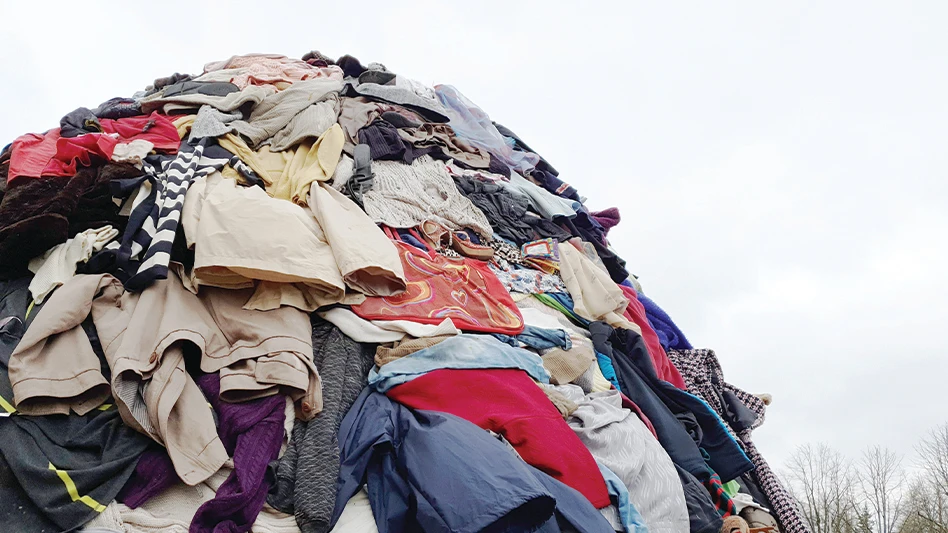
annaspoka | stock.adobe.com
Textile-to-textile regeneration company Reju and textile recycler Novelles Fibres Textiles (NFT), both based in France, are partnering on the sourcing and recycling of textile scrap to support the building of a circular ecosystem in the country. Per their agreement, NFT will supply secondary raw materials derived form used or unused textiles to Reju for recycling and production of regenerated Reju Polyester.
The companies will collaborate to expand the collection and processing infrastructure for apparel and textile scrap from postconsumer and postindustrial sources in France, which they claim will also for an open supply chain and a guarantee of 100 percent traceability of recycled materials.
RELATED: Organizations’ proposed pilot targets textile recycling in North America
Reju is developing the infrastructure to take textile scrap and regenerate it at scale, starting with polyester. The end product—Reju Polyester—is expected to have a 50 percent lower carbon footprint than its virgin counterpart and can be regenerated infinitely. Reju’s first demonstration plant—Regeneration Hub Zero—is now operational in Frankfurt, Germany, and will come online to enable the production of Reju polyethylene terephthalate (PET) in 2025.
Materials supplied by NFT will be processed at Reju’s Frankfurt facility, as well as future Reju hubs in Europe.
“Reju and Nouvelles Fibres Textiles are using innovation and collaboration to accelerate the transition to a circular textile ecosystem,” Reju CEO Patrik Frisk says. “This valuable partnership demonstrates our collective commitment to addressing the problem of textile waste and developing new ways to use the resources we have within local supply chains.
“With the collection of textile waste mandatory in the European Union starting in 2025, it is imperative we have scalable systems and partnerships to process what is collected and keep it from landfills or incineration. Together, Reju and NFT are building the technology and infrastructure to regenerate and reuse materials across industries and change the way we use our resources.”
NFT says it joined its partners to open a semi-industrial site and research center for textile recycling in November 2023. The company claims the pilot line is the first to combine Pellenc ST’s automated sorting technologies with Andritz’ tearing lines to process high volumes of postindustrial and postconsumer textile scrap, eliminate hard points and turn them into industrial-grade fiber and raw material feedstock for new recycling technologies like Reju’s. NFT also provides secondary raw materials to industries that include nonwovens, insulation, composites, plastics and other textiles.
“After six years of research and collaborative work, Nouvelles Fibres Textiles is now ready to collaborate with professionals who need to recycle their textiles," NFT co-Directors Eric Boel and Etienne Wiroth say. “We have an innovative turnkey solution that transforms heterogeneous end-of-life textile streams into high-quality homogeneous raw materials while ensuring their traceability. Our partnership with Reju paves the way for the perminudstry: a circular, more local, less carbon-intensive and more collaborative-industry—essentially, an industry that does good.”
Latest from Recycling Today
- Alberta Ag-Plastic pilot program continues, expands with renewed funding
- ReMA urges open intra-North American scrap trade
- Axium awarded by regional organization
- China to introduce steel export quotas
- Thyssenkrupp idles capacity in Europe
- Phoenix Technologies closes Ohio rPET facility
- EPA selects 2 governments in Pennsylvania to receive recycling, waste grants
- NWRA Florida Chapter announces 2025 Legislative Champion Awards





